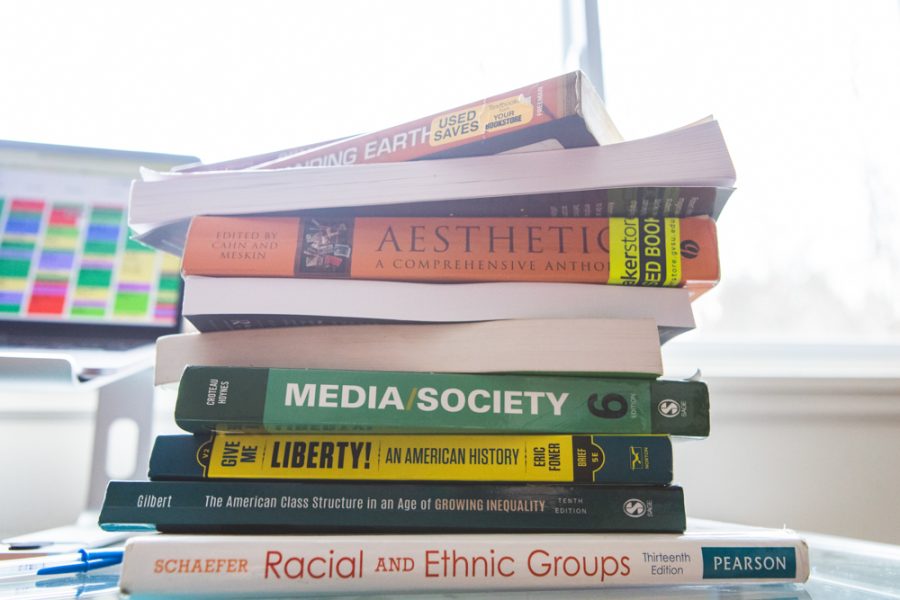
After a school year of online learning due to the COVID-19 pandemic, Grand Valley State University students and faculty are still adjusting to being back in the classroom. Changes to policy and instruction this year have created new challenges and experiences for all.
In the past two academic years, many students opted to halt or postpone their education due to the hardships COVID-19 provoked. According to the Division of Enrollment, Development, and Educational Outreach, total enrollment dropped 2.8% in 2020, and 4% in 2021. While online courses have been available, online and alternative learning have not been feasible for all, resulting in this decline.
However, the majority of GVSU students have persisted in continuing their education after a year of online learning. Many are excited about the transition back to in-person classes.
“I’m pretty relieved to be able to actually go to class this year,” said GVSU junior Sara Vickery. “I missed having discussions with people face-to-face because I feel like that’s how I learn the best.”
While returning to the classroom has been a cause for excitement, it has not come without setbacks and adjustments. Professors have been tasked with learning yet another method of teaching, complete with ever-changing protocols, new students and a still unpredictable virus.
“For 21 years, I’ve really been teaching in the same format,” said Thomas Pentecost associate professor of chemistry. “Switching to online felt completely new, and now that we’re back, teaching now feels almost as new as going online.”
To make the transition easier, many professors are still using online tools to their advantage.
“I had to put assignments and other work online for my students in my staggered hybrid course last year because they weren’t physically in the classroom,” Pentecost said. “I’ve kept some of those resources and I’ve been using them as supplements in my courses.”
In addition to adjusting to a new teaching format, many professors have decided to devote extra attention to the mental health of students this year. Since the period of quarantine and isolation caused by the COVID-19 pandemic, there has been a surge in mental health issues across the United States.
Currently, the number of people screening with moderate to severe symptoms of depression and anxiety is increasing and is higher than rates prior to COVID-19. Specific to college students, more than 80% felt overwhelmed by the past year and 45% have felt things were hopeless. This information has made a change in the perspective of faculty members, as many students continue to struggle with the stress of living in a pandemic, according to research from Mental Health America.
“One positive thing that came out of what we had to do is that I feel like many faculty, myself included, have realized that what goes on outside of the classroom affects what goes on inside the classroom,” Pentecost said.
Those suffering from increased stress levels or mental health issues can reach out to the University Counseling Center for one-on-one help.
In terms of physical health, the GV community is continuing to work to ensure the safety of staff and students as face-to-face instruction continues. On Thursday, October 14th, the GVSU Virus Action team announced that nearly 93% of the population working or learning on-campus were in compliance with the vaccination policy. The mask mandate will also remain in place for the time being, to limit the spread of COVID-19.
"still" - Google News
October 18, 2021 at 07:02PM
https://ift.tt/3jdKHTU
GV students, faculty still face COVID-19 changes as semester marches on - Grand Valley Lanthorn
"still" - Google News
https://ift.tt/35pEmfO
https://ift.tt/2YsogAP
Bagikan Berita Ini














0 Response to "GV students, faculty still face COVID-19 changes as semester marches on - Grand Valley Lanthorn"
Post a Comment